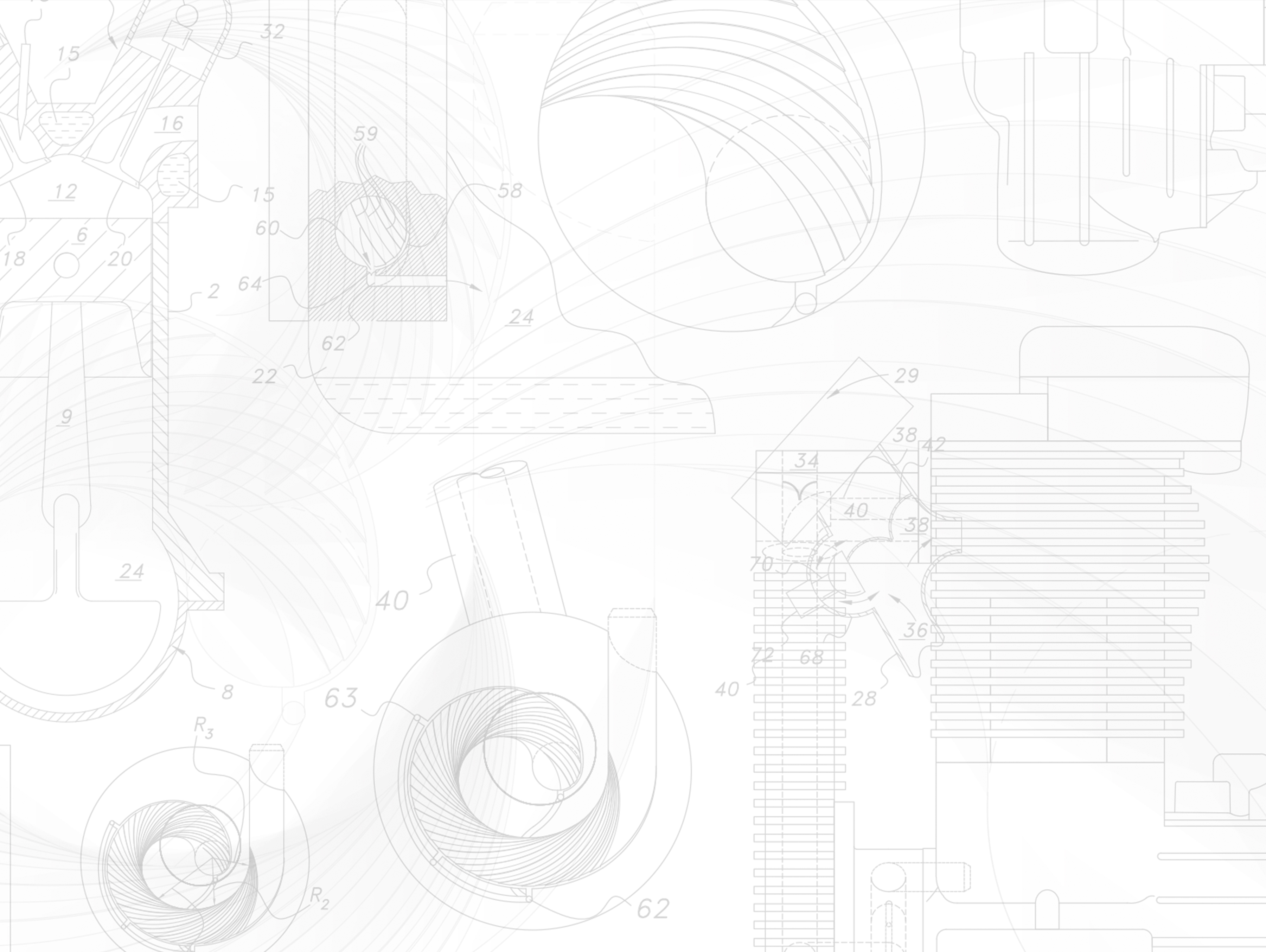News
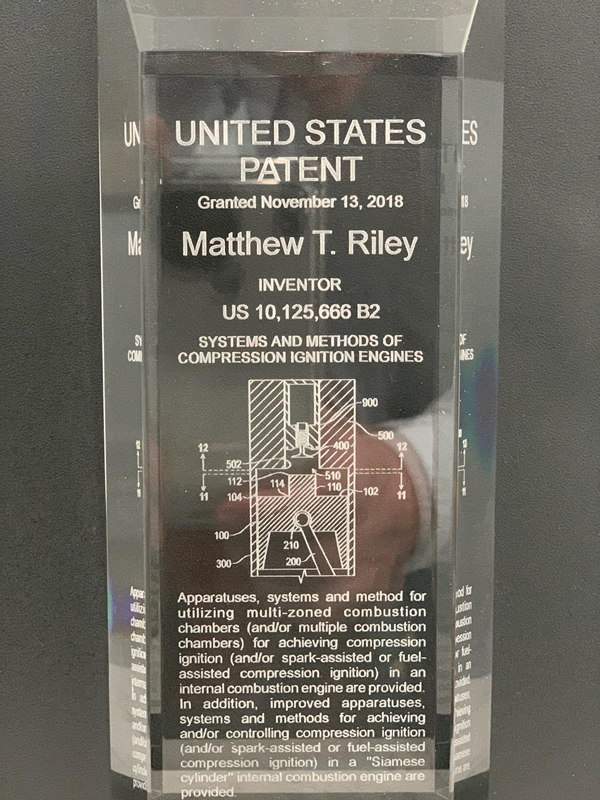 |
United States Patent - Systems and Methods of Compression Ignition EnginesNautilus Engineering, LLC was awarded its patent on November 13, 2018. US 10,125,666 B2 - Systems and Methods of Compression Ignition Engines. View the patent here. |
|
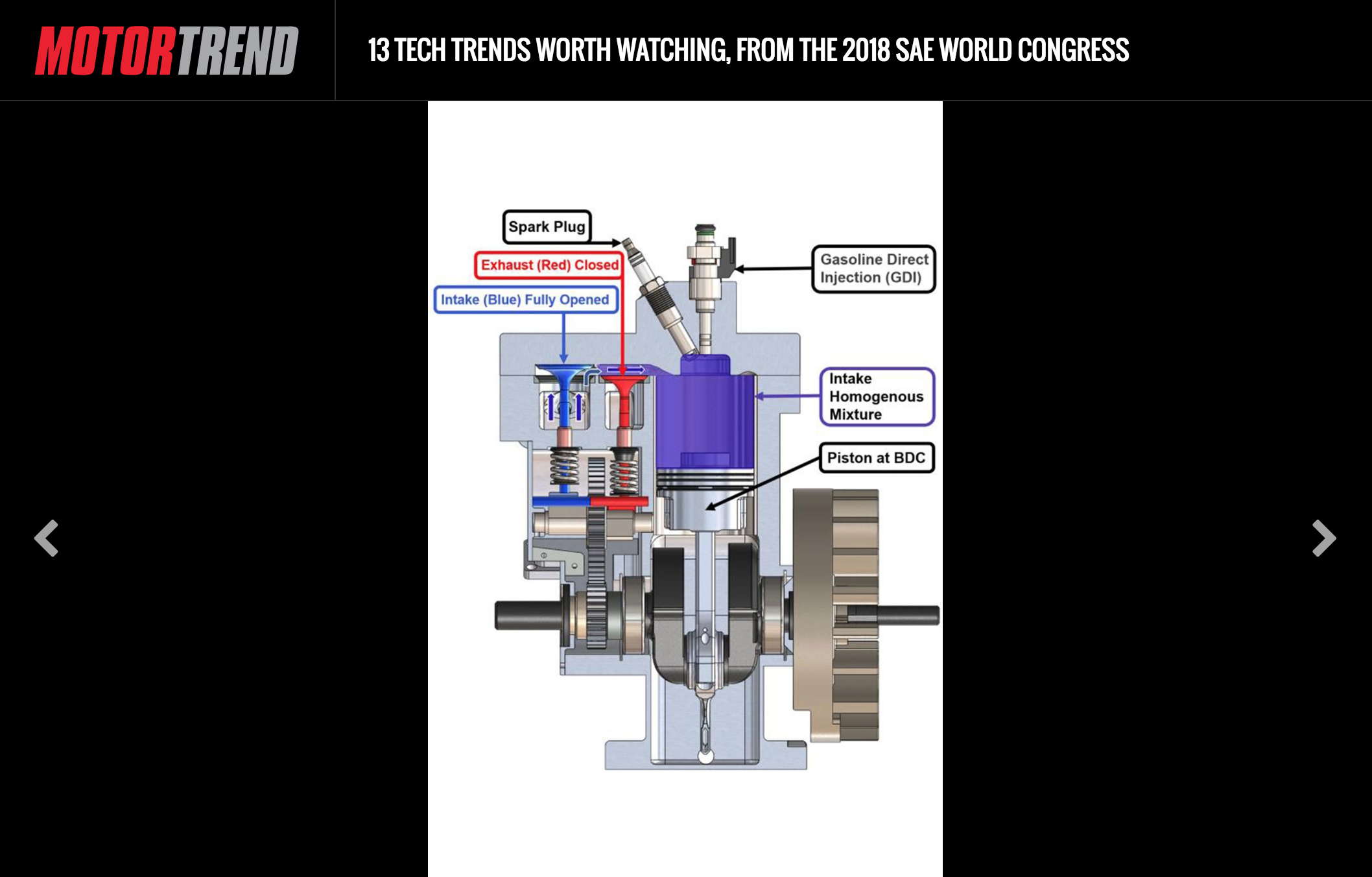 |
13 TECH TRENDS WORTH WATCHING, FROM THE 2018 SAE WORLD CONGRESS...Because homogeneous compression ignition happens more or less all at once everywhere, there’s no need to worry about a flame front reaching the far end of this passage. The test engine is validating claims of 30 percent better fuel efficiency and ultra-low engine-out emissions running on 87-octane pump gas. |
|
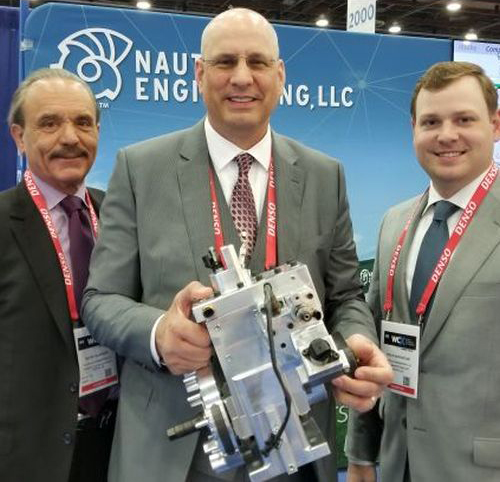 |
Who says internal combustion engine technology is dead?We saw two novel internal combustion engine concepts at WCX. One from Nautilus Engineering LLC uses homogenous charged compression ignition technology. The Nautilus four-stroke/six-cycle dynamic multiphasic combustion engine has two combustion chambers with multiple ignition events happening within one stroke.  |
|
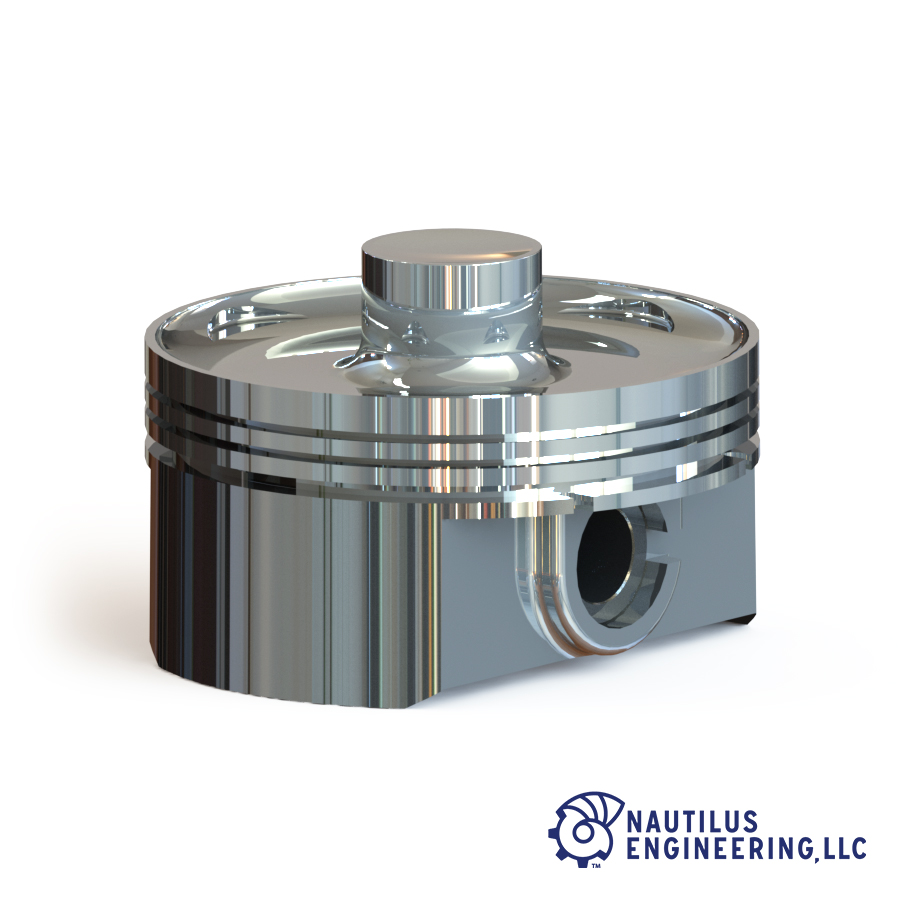 |
Nautilus - does this engine change everything?Being able to run the engine so lean means that substantial fuel savings are projected for the Nautilus HCCI engine compared with both petrol and diesel. "On a per litre basis we're going to be 20-30% more efficient, diesel would be about 20-25%, and petrol will go even higher," says Riley.  |
|
 |
7th International Diesel Summit, Beijing 2017Nautilus Engineering LLC attended the Diesel Summit along with Presidents, Managing Directors, VPs, Directors from Chinese, European and American regulatory agencies (EPA, EU Commission, Beijing, India, Korea, Japan) and OEMs, engine manufacturers. The majority of speaker topics centered on reduced Emissions solutions. M. Riley-CEO, Nautilus Engineering, addressed the audience with the Nautilus HCCI/HCI Cycle technology and benefits, with all attendees expressing great interest and requests for immediate follow-up. |
|
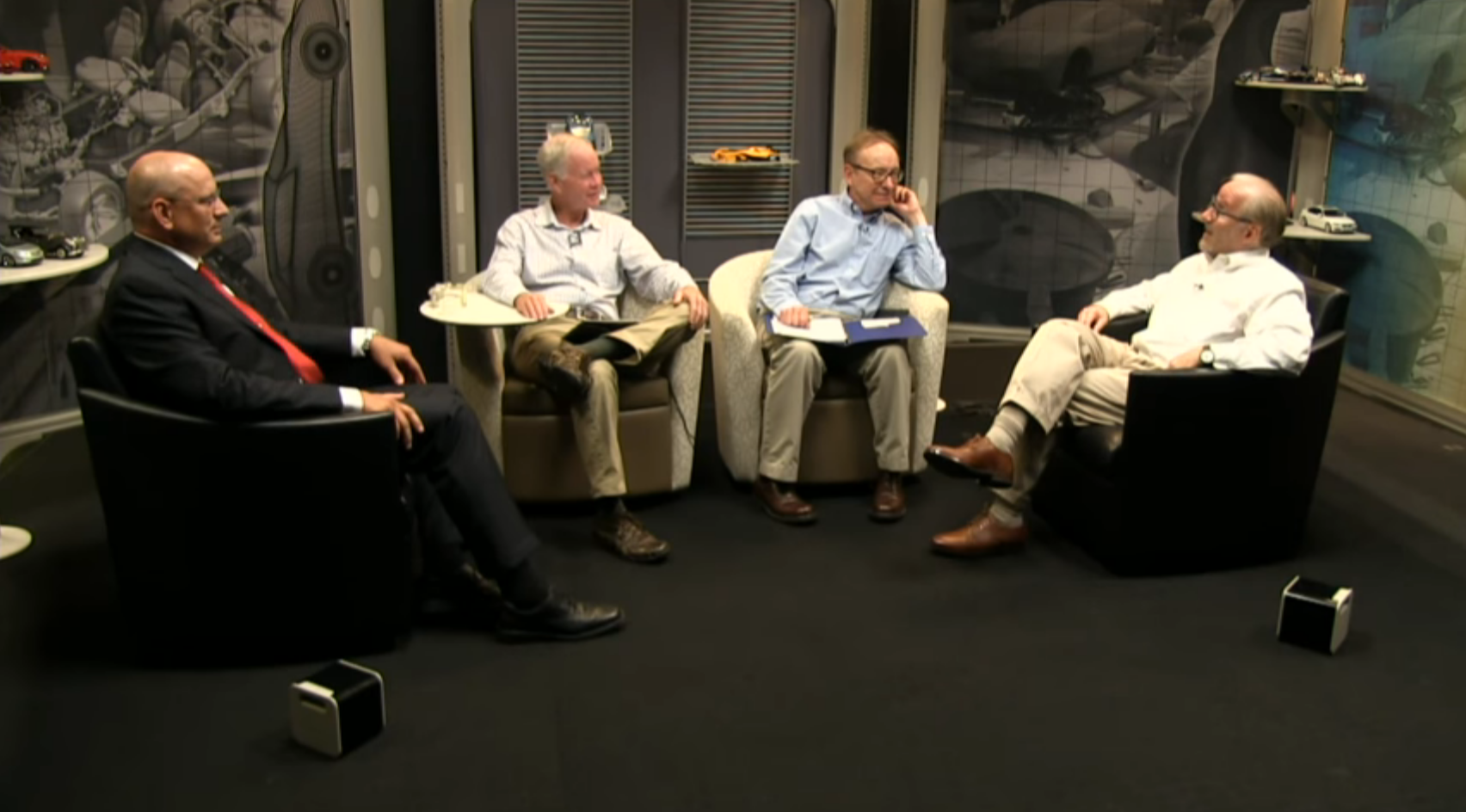 |
Autoline.tv - HCCI spells Efficient EnginesAutoline Afterhours showHost is John McElroy, Co-host is Gary Vasilash-Automotive Design and Production Editor-in-Chief. View on Autoline.tv | View on Youtube |
|
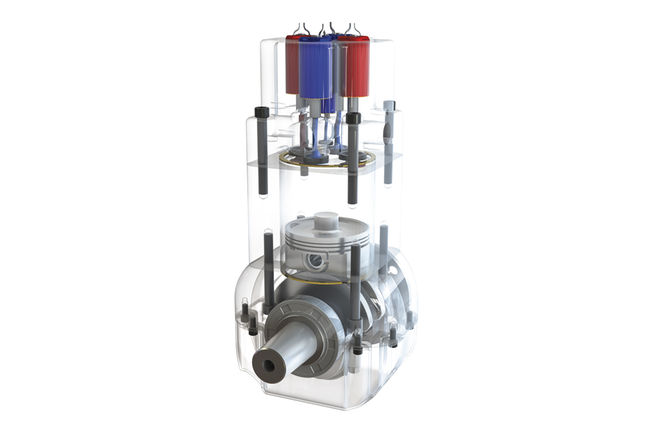 |
Fourth Strike?: Another Batter Swings At The Compression-Ignition Gas Engine TechnologueThe engine engineer’s dream of running an ultra-efficient diesel cycle on cheaper and easier-to-clean-up gasoline is starting to feel like the football Lucy pulls away every time I go to kick out another column heralding its impending feasibility. My hopes have been raised before by Mercedes’ DiesOtto, GM’s HCCI, and Hyundai’s GDCI concepts, none of which we’re driving all these years later. But here’s why I’m taking one more run at this: GM and Mercedes were attempting to convert gas engines to dual-mode operation using the spark plug under full load and/or idle conditions and compression ignition during steady-state cruising. These new guys are proposing a dedicated all compression-ignition approach. |
|
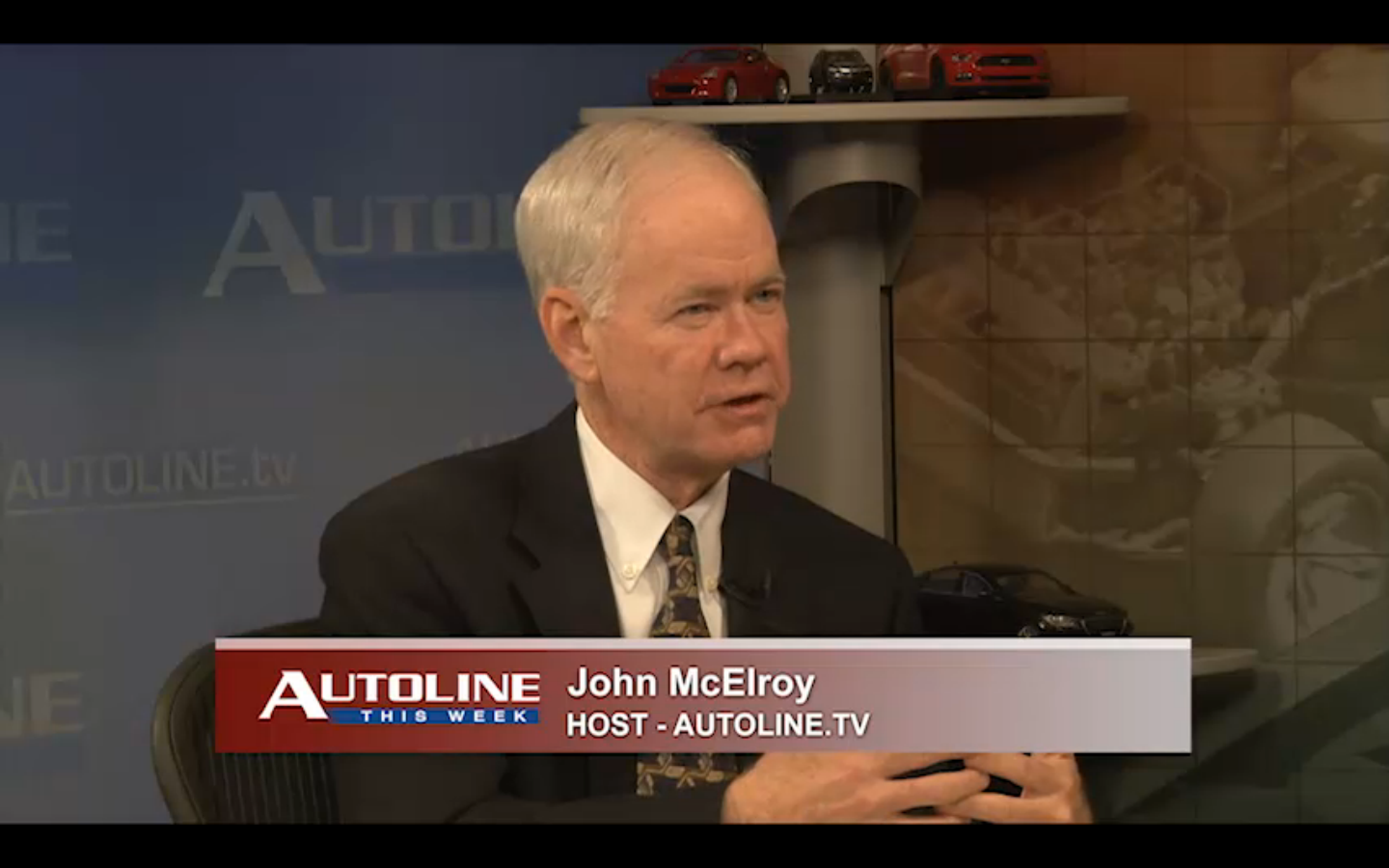 |
Autoline.tv – Advanced Propulsion Systems“When experts are asked what will be powering our cars now and into the future, you hear any number of options ranging from electric to plug-in to hydrogen just to name a few. In reality, there are a number of companies around the world working on just that: three who join us today on Autoline THIS WEEK. Joining John McElroy’s Advanced Propulsion panel to discuss the products they’re working on are Dave Johnson from Achates Power, Matthew Riley from Nautilus Engineering and Isak Lofgren from KASI Technologies of Sweden.” |
|
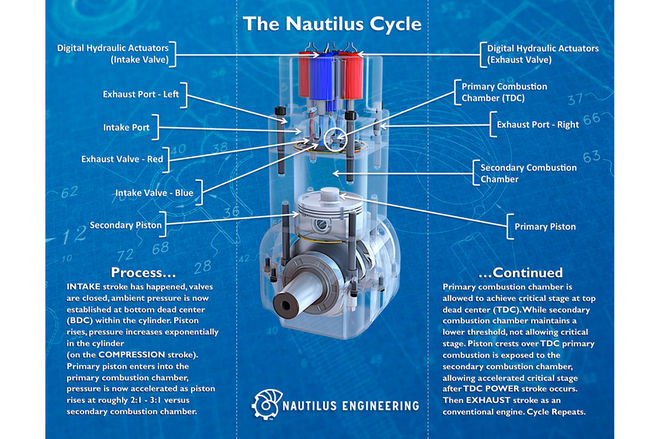 |
TOP 13 TECH HIGHLIGHTS FROM THE 2016 SAE SHOW"The main mechanical compression ratio is 10.5:1, but when that little piston enters its little chamber, the local compression inside increases to double or more at about top-dead-center of the piston travel. That’s sufficient to reliably ignite the localized air-fuel charge, sending the piston back down and igniting the remainder of the charge." |
|
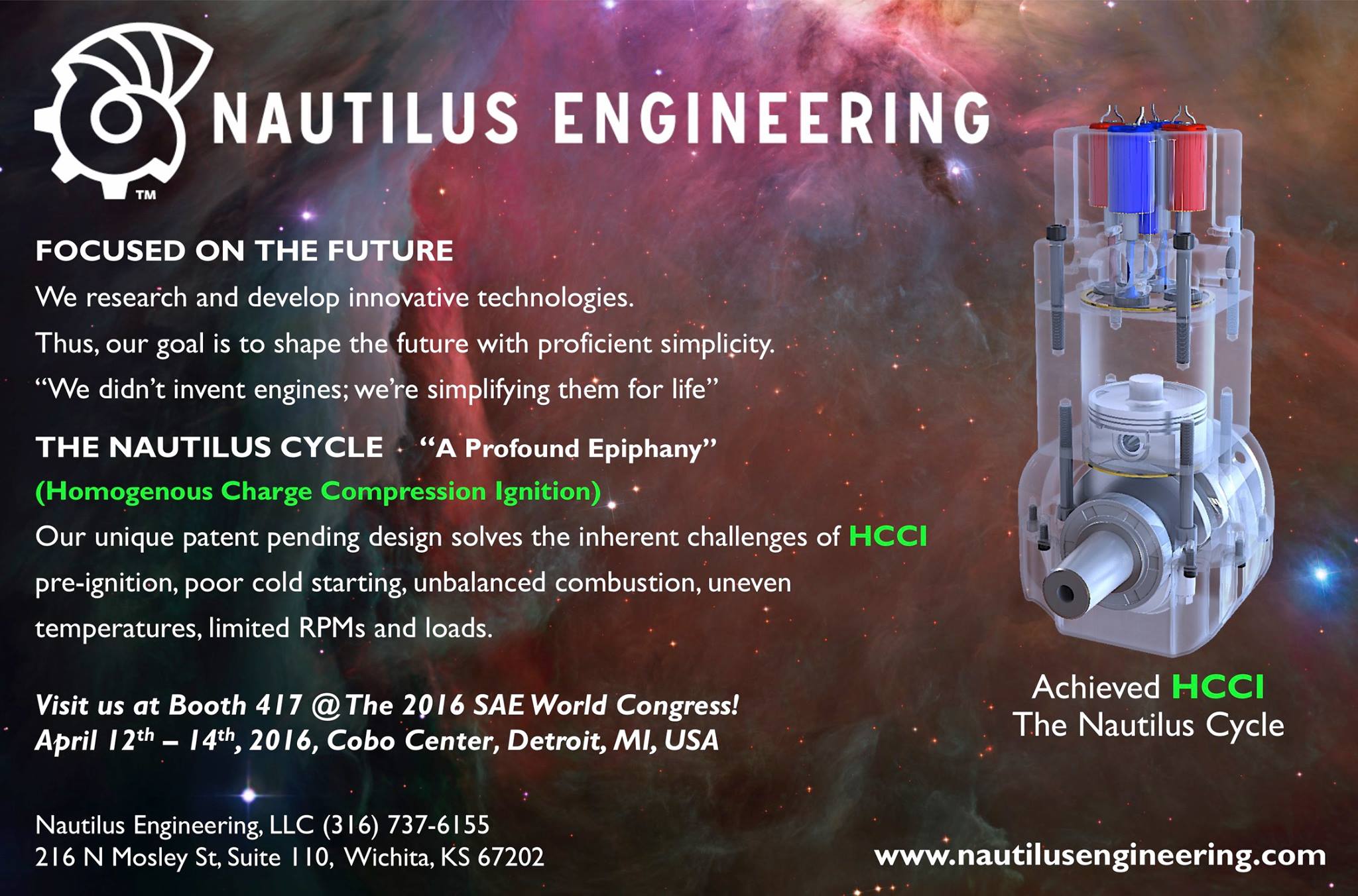 |
Nautilus claims radical advance in HCCI engine development"...a decade or more of serious development has proved HCCI an elusive target, its need for intensive combustion control, issues with cold-start operation and difficulty in addressing the entire automotive rpm range suppressing introduction for production-vehicle application." |
